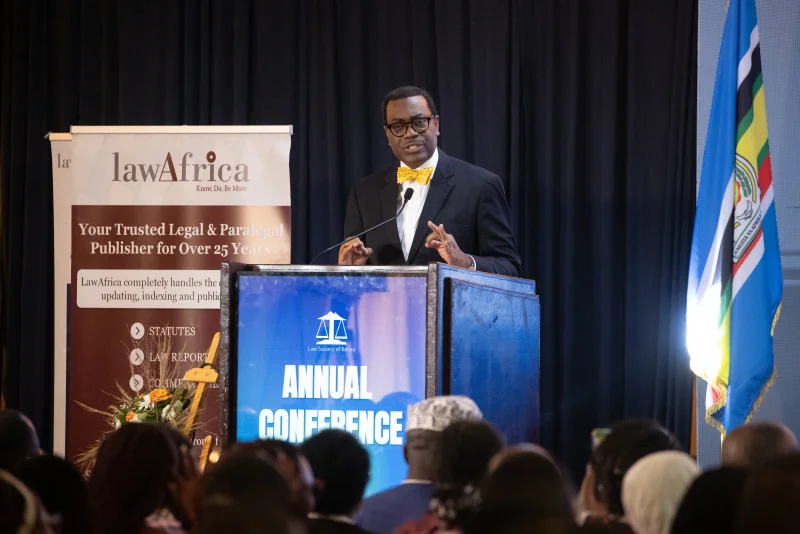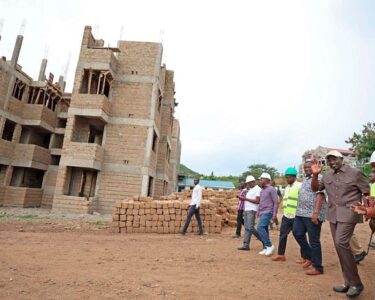By Our Reporter
Africa’s true wealth lies not in its oil wells, minerals, or fertile lands, but in the ability of its institutions to govern resources transparently, enforce contracts fairly, and guarantee justice for all.
That was the central message delivered by Dr. Akinwumi Adesina, President of the African Development Bank (AfDB), as he closed the Kenya Law Society’s 2025 Annual Conference in Diani, Kwale. Speaking before more than 1,200 judges, lawyers, and senior government officials, Dr. Adesina made a compelling case for justice and governance as the foundations of economic transformation.
“Justice is not a byproduct of development—it is the foundation of development,” he declared, tying Africa’s economic trajectory directly to the strength of its legal and governance systems.
Despite immense opportunities, Africa remains hampered by a staggering Sh12.95 trillion ($100 billion) annual shortfall in foreign direct investment, much of it linked to weak rule of law rankings, fragile debt positions, and exploitative financial practices. Dr. Adesina warned of the growing threat posed by so-called vulture funds, which exploit weak legal frameworks to drain resources from debtor nations through unfair settlements.
He emphasized that global capital consistently flows toward environments of political stability, transparency, and low corruption, and called on African nations to urgently reinforce judicial independence, strengthen regulatory frameworks, and embed accountability across public finance systems.
The AfDB chief argued that Africa’s economic destiny depends on systemic legal and institutional reforms. These include modernized natural resource laws to ensure communities benefit from their wealth, the creation of sovereign wealth funds to safeguard future prosperity, and the establishment of robust African arbitration mechanisms that allow disputes to be resolved locally, efficiently, and fairly.
“As lawyers, justices, and guardians of the law, you must uphold the rule of law with fairness and righteousness,” Dr. Adesina urged, challenging Africa’s legal fraternity to see themselves as custodians of national destiny by protecting constitutional safeguards around public finance and governance.
Dr. Adesina pointed to ongoing AfDB-backed initiatives as evidence that reforms yield tangible results. In Kenya, procurement transparency measures and debt disclosure frameworks are improving the credibility of public finance management. In Rwanda and Côte d’Ivoire, the establishment of specialized commercial courts has reduced the time needed to resolve disputes by nearly half, unlocking more than Sh129.5 billion ($1 billion) in new investment. In the Seychelles, constitutional reforms mandating parliamentary oversight of borrowing helped slash the debt-to-GDP ratio from above 100% to below 55%, restoring fiscal stability.
For Africa to achieve its full potential, Dr. Adesina concluded, the rule of law must be treated not merely as an abstract principle but as the bedrock of governance, investment, and prosperity. “The continent’s future,” he said, “rests in the hands of those who ensure that justice and accountability remain at the center of every policy, every judgment, and every financial decision.”






